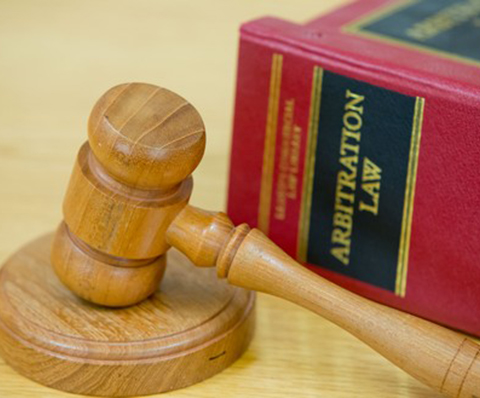This article has been written by Diya Banerjee, Symbiosis Law School, NOIDA. This article provides a detailed analysis of the arbitration mechanism and what it takes to make it work successfully.
Table of Contents
Introduction
The Indian judicial system, while being renowned for declaring some of the most controversially successful judgements, has been burdened with a myriad of pending cases. Arbitration has, thus, come out to be the next preferred course of action, also known as Alternative Dispute Resolution (ADR).
Arbitration and Conciliation Act, 1996 has become the modern solution for resolving the otherwise lengthy legal disputes with much ease. What’s more? The Amendments which are made, keep the Act up-to-date and also maintain its flexibility.
Gaining popularity in the field of practice, many commercial and complex disputes are referred for resolution through arbitration. However, to make sure that this system of legal recourse is not overburdened, certain key points have to be followed to maintain its effective and successful work mechanism.
Cooperation of parties
The Indian Council of Arbitration (ICA) has rules defined under the “Rules of Arbitration of the Indian Council of Arbitration” which clearly and crisply lay down that the parties (individuals, firms, companies, etc.) who have settled for arbitration for dispute resolution have to cooperate with the following Rules, whatever being put forth by Arbitration Committee, in respect to the
- Timely filing of applications along with full disclosure of information.
- It has to be maintained that even the full statement of claim and documents being relied on as evidence is presented by both the claimant and the respondent.
- Regarding the costs of the procedure, the parties are to pay the required amount of arbitration and administrative fees on stipulated time, the only exceptions being compelling circumstances. Regarding the costs of the arbitrator, it is suggested that he/she shall be chosen from the panel of arbitrators by the parties and if not, the concerned party shall bear his/her extra cost of travelling and other expenses.
- Other rules entail that parties have to follow through the entirety of the procedure with due diligence and honesty. The code of conduct as prescribed by the Committee and dictated by the arbitrators shall be followed without any unnecessary delay.
The cooperation of the parties shall extend to each other as well, i.e., both have to consider each side and reach a consensus in the selection of arbitrators and division of costs to maintain smooth and quick disposal of the matter.

Cooperation of counsels
It is inevitable that the counsels appearing for the two parties will be in conflict but arbitration especially emphasizes the need for cooperation. The Rules of the ICA lay down that both the counsels will essentially present arguments defending their clients but at the same time, must be cooperative to keep the proceedings swift.
- The counsels are not supposed to misuse the flexible rules of arbitration to raise the cost of the investigation.
- The counsels must work in a manner that would enable them to reach an agreement in relation to the application of certain laws of evidence for investigations and so.
- Most of the expectations from the counsels coincide with the expectations from the parties; delinquent submissions have to be avoided, delay tactics are frowned upon, preparations for the proceeding should be seen through thoroughly and the testimonies submitted before the panel should not be redundant.
In short, the cooperation between the counsels is all about keeping within the stipulated time keeping in mind the good interests of their clients, and overall respect to the procedural needs.
A well-drafted arbitration agreement
What are the elements of a well-drafted agreement? The conditions of legal subject matter, validity, and legality are obvious. However, some features are of higher significance to make the agreement a good one.
- First, it should be fair to both parties.
- Second, it should state clearly all the terms and what they mean because when the context of the agreement alters, so does the meaning of a multifaceted word.
- Thirdly and possibly the most important, the probability of loopholes in the agreement should be as good as none so as to avoid the problem of the frustration of a clause, which would lead to discharging the parties from their obligations.
Note that this is all in respect to commercial contracts, them being most commonly referred for arbitration. The following points encompass the core aspects of making a well-drafted agreement.
Clear mention of the type of Arbitration
First and foremost, the kind of arbitration lays the groundwork for the proceedings to follow. It also gives the parties and their counsels guidelines on what is expected of them in terms of their documents and submissions.
- On the basis of jurisdiction in India.
- Domestic Arbitration: Though not defined in the Arbitration and Conciliation Act, 1996, it is inferred from the phrase “domestic arbitration” that both the parties of the dispute must be Indians, the cause of action for the dispute must have occurred within the territory of India and thus, the matter will be decided with the application of the substantive law of India.
- International Arbitration: For any matter to be referred for treatment under International Arbitration, either one of the parties should be based abroad or subject to the cause of the action must have relations with foreign elements. The law applicable in question would be contingent upon the facts of the matter and the contract existing between the parties.
- International Commercial Arbitration: as per the Arbitration and Conciliation Act, 1996, a dispute is considered to be ‘commercial’ where the legal relationship is, irrespective of its contractuality, considered as commercial under the Indian law in force and has at least one party as:
- A national or a habitual resident of a foreign country.
- A body corporate to be incorporated in a foreign country.
- An association or a body of individuals whose core management and control is in a foreign country.
- A Foreign Government.
The laws to be applied here are also contingent upon the subject of the dispute and any specification of a law or legal system is open for interpretation unless expressly stated.
- On the basis of procedures and rules in India.
- Institutional Arbitration: Simply put, when the Arbitral Institution conducts the arbitration, it is called Institutional Arbitration; it is the institutionalized manner of arbitrating. The rules of the institution act as a framework for governing the arbitration procedures and the parties have the choice to specify in the arbitration agreement to settle the dispute in accordance with the specified rules of the institution. This form of arbitration provides relative flexibility to the parties because they can select the panel but it would be restricted to the pre-selected panel by the governing body of the institution.
- Ad-hoc Arbitration: When the parties do not go by the rules of institutional proceedings and arrange for an arbitration themselves with a due agreement, it is called an Ad-hoc arbitration. It can be applied for domestic or international arbitration. Due to the lack of rules of an arbitral institution, the parties are free to go by their own agreed-upon rules. However, the geographical jurisdiction is of significance because whatever the case be, most of the issues of arbitration are resolved through the national law of the seat of arbitration, i.e, the location of legal significance in respect to the matter, chosen by the parties.
- Fast Track Arbitration: It is a sort of remedy to the occasional lengthy arbitration proceedings. It is strictly regulated by a policy to complete a matter within 6 months from its initiation and written submissions will suffice instead of following through with oral first. The nature of the proceedings is much more informal than the other forms because any practice which is time-saving and cost-friendly is adopted to resolve the matter as quickly as possible.
Proper selection of arbitrators
The submission presented before the panel, be it oral or written, will be well-founded and covered, if and only if, the arbitrators chosen at the instance of the parties have the right qualification and experience, otherwise, the cause would be lost on them. Along with the qualification, the parties and the panel have to make sure that the arbitrators selected for the arbitration follow the norms devised for them. The Eighth Schedule, introduced by Section 43J by the Amendment Act of 2019 in the 1996 Act clearly lays down both the qualifications and th.e norms.
- Qualifications to be met.
- The advocate to be selected should have an experience of no less than ten years in practice.
- The chartered accountant to be selected should have no less than ten years of experience as a chartered accountant.
- The cost accountant to be selected should have an experience of no less than years as a cost accountant.
- The company secretary to being selected should have no less than ten years of experience as a company secretary.
- Has been an officer of Indian Legal Services.
- In the matters of Government, Autonomous Body, Public Sector Undertaking or in a Private Sector Company as a senior-level managerial position holder, the officer to be selected is/holds,
- A law degree with a minimum experience of ten years.
- An engineering degree with a minimum experience of ten years.
- Senior-level experience in the Central or State Government or a senior level experience in management.
- A person with a degree-level qualification with ten years of scientific/technical experience in the fields of telecom, information technology, intellectual property right, etc.
- The norms to be followed by the arbitrators are of generic nature. The arbitrator should be a person of integrity, fair reputation, impartial, and well-rehearsed with the kinds of arbitration and the contractual obligations of the dispute. He shall not be involved in any legal proceeding and avoid the potential conflicts related to the matter being arbitrated. It is a given that he should not have been convicted of any offence and should be a person with the ability to enforce or write a reasoned and enforceable arbitral award regarding the dispute.
Clearly mentioning the rules to be used for an arbitration
To avoid any ambiguity in the arbitration proceedings, the rules which would be applicable to the proceedings have to be discussed, stated, and enforced before the proceedings actually begin. Throughout this article, the requirements of the agreement, the code of conduct, the arbitration panel, the primary characteristics of arbitration have been discussed. All of them form a part of the rules to be used for arbitration. However, under this header, we shall go by the specific determinants of the rules of the procedure given in Section 19 of the 1996 Act.
- Section 19(1) states that the arbitration procedure will not be governed by the application of the Code of Civil Procedure, 1908, or the Indian Evidence Act, 1872. This is important to be noted because these CPC and the Evidence Act are the guiding principles in most legal proceedings.
- Section 19(2) goes on to further say that subject to the previous clause, the parties can formulate their own rules to go by for the proceedings through a due agreement with each other.
- Section 19(3) gives the power to the arbitral tribunal to regulate the proceedings with appropriate institutionalized rules if the parties fail to come to an agreement upon the choice of rules they want to follow.
- Section 19(4) finally lays down that ultimately, it is upon the tribunal to accept or reject the evidence and decide upon their admissibility and relevance.
Clearly mentioning the seat and place of arbitration
The seat of arbitration means the Court and the laws which would govern the dispute. The place of arbitration is the geographical location where the arbitration is actually being heard. It has to be understood that the Seat and the place need not be the same. Section 20 of the 1996 Act governs the rules for the place of arbitration.
- Section 20(1) states that the parties are free to agree upon a place for the arbitration to be conducted.
- Section 20(2) states that the tribunal may decide the place of arbitration if the parties fail to agree upon the same, all the while keeping in mind the convenience of the parties.
- Section 20(3) furthermore states that the tribunal may meet anywhere, with the agreement of the parties, to facilitate consultation with other members, hearing, inspection, witnesses, etc.
Clearly mentioning the substantive laws to be used in an arbitration
Rules as to the laws that would be used in arbitration are under Section 28 of the 1996 Act.
- Section 28(1) governs the rules for arbitration in India-
- Section 28(1)(a) states that other than international commercial arbitration, the tribunal shall decide the dispute using the substantive law being in force in India.
- Section 28(1)(b) talks about international commercial arbitration, is divided into three parts-
- Section 28(1)(b)(i) states that the tribunal will adhere to the rules of the substantive laws as designated by the parties in the agreement to resolve the dispute.
- Section 28(1)(b)(ii) states that the tribunal is free to interpret the specified rules of the substantive law so mentioned if the designation is not expressly agreed to in nature.
- Section 28(1)(b)(iii) states that where there is no specification by the parties in regard to the substantive law to be applied, the tribunal has the power to follow the appropriate substantive law given the circumstances of the dispute.
Clearly mentioning any other detail concerning the arbitration agreement
While there are no further stringent rules of arbitration, few details have to be made sure of. Before going for arbitration, the claimant should know that disputes of the following nature are either non-arbitrable or their admissibility is ambiguous:
- Criminal offences;
- Matrimonial disputes;
- Competition laws;
- Tenancy and eviction laws;
- Guardianship disputes;
- Insolvency and liquidation matters;
- Fraud.
Timely delivery of notices with regards to arbitration
- When the claimant wants to go for arbitration to resolve the dispute, he/she has to give notice of the request to the Registrar of ICA and the Respondent. With the said notice, the claimant also has to submit the documents containing the names and addresses of the parties, the statement of claim and remedy sought by the claimant, the certified copy of the arbitration agreement and any contract which is relevant to the dispute; all this to be done within the stipulated time decided between the parties. Along with this, the arbitration fees also have to be submitted with respect to the claim sought because arbitration commences on the documents and fees are received by the Council.
- The respondent in support of his case may also submit counterclaim within the stipulated time period.
- The tribunal has to give advance notice to the parties for the hearing of the matter.
- If the claimant has to make any reply to the counterclaim of the respondent, that should be made within 30 days.
- Following the procedure, when an arbitrator is appointed and if any of the parties has to challenge such an appointment, it should be communicated within 30 days of the appointment,
- The most important rule for such notices is that, under Section 3 of the 1996 Act, written communication is deemed to have been received if it is delivered to the addressee personally, at his/her residence or workplace; or even if it is refused or returned as unclaimed.
- Moreover, if in the initial stages, the claimant fails to submit his statement of claim, the hearing would be terminated. Whereas, if the respondent fails to reply to the claimant’s submissions, it would be seen as an acceptance of the allegations and the hearing would continue. If any of the parties are unable to appear for the oral hearings or present documentary evidence, the arbitral award would be weighed in respect to the evidence the tribunal has with itself in the present.
Conclusion
Through the enactment of the Arbitration and Conciliation Act, 1996, and the continuous amendments constituted to ADR, it has emerged as the best alternative resort to resolve legal matters out of court to avoid the delay which has become a job requiring exceptionally long and tiring efforts. It is especially considered the most favoured form of dispute resolution for commercial and international matters. What makes arbitration more attractive is not only the scope of practice for legal professionals but also the effective and efficient working mechanism as a whole, very much dependent upon an agreement drafted with superior knowledge to include the aspects for which arbitration is so popular, time-saving, cost-friendly, speedy but of quality and proving as effective as any usual lengthy court proceeding.
It is a certainty that with the advancement in society and the consistent need to improve the Indian Legal System, arbitration mechanism would constitute a major contributor in the field of law and so would the need to keep it polished only keep evolving.
LawSikho has created a telegram group for exchanging legal knowledge, referrals and various opportunities. You can click on this link and join:
 Serato DJ Crack 2025Serato DJ PRO Crack
Serato DJ Crack 2025Serato DJ PRO Crack










 Allow notifications
Allow notifications


